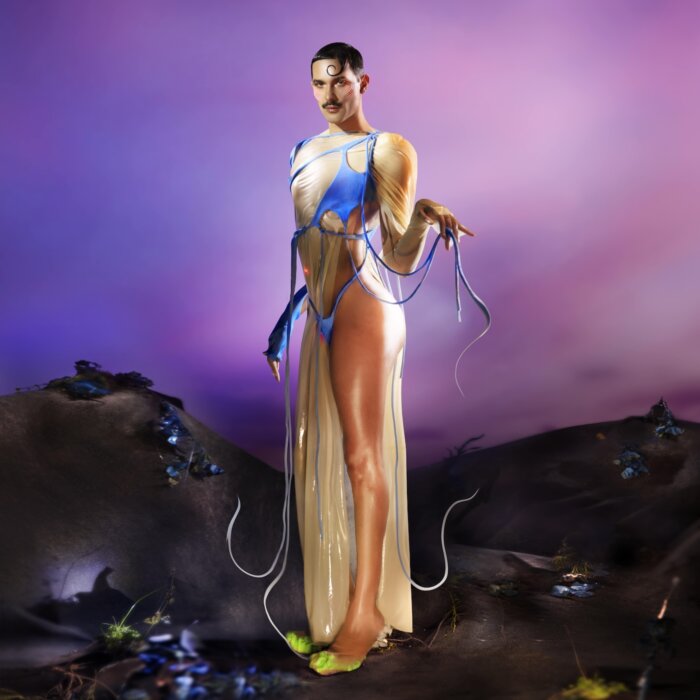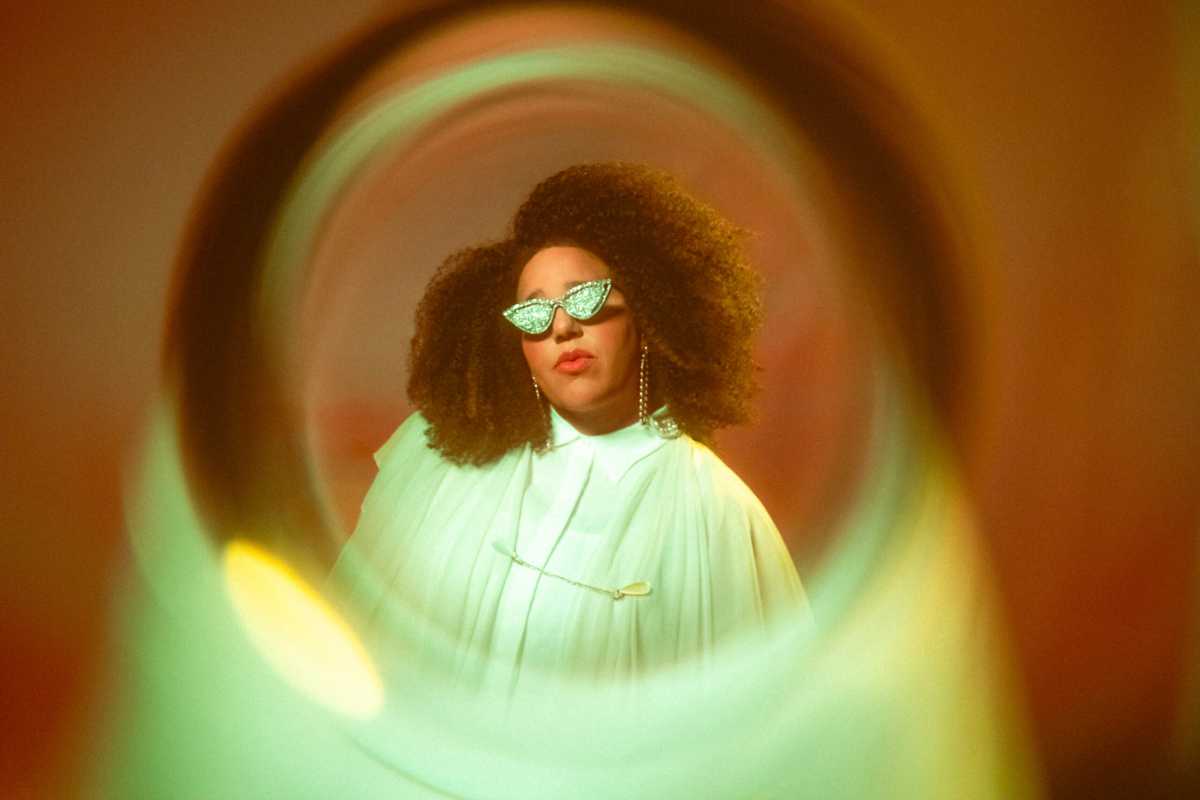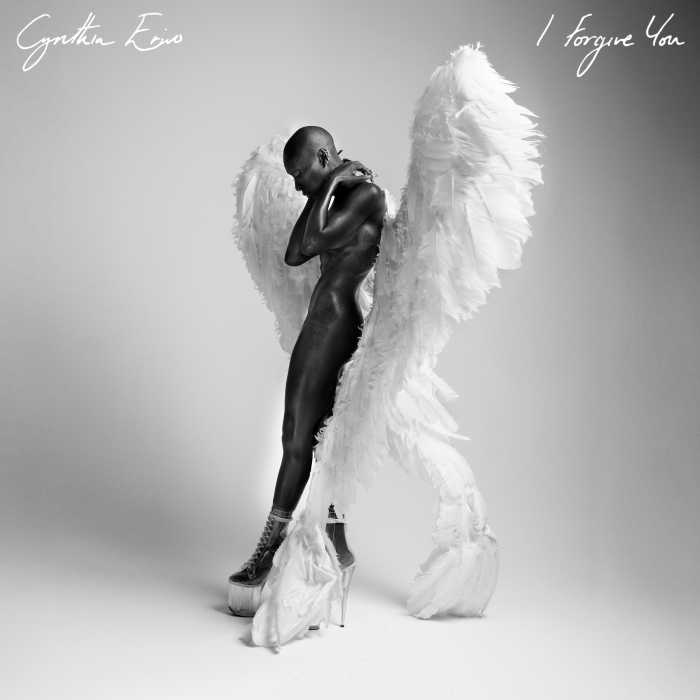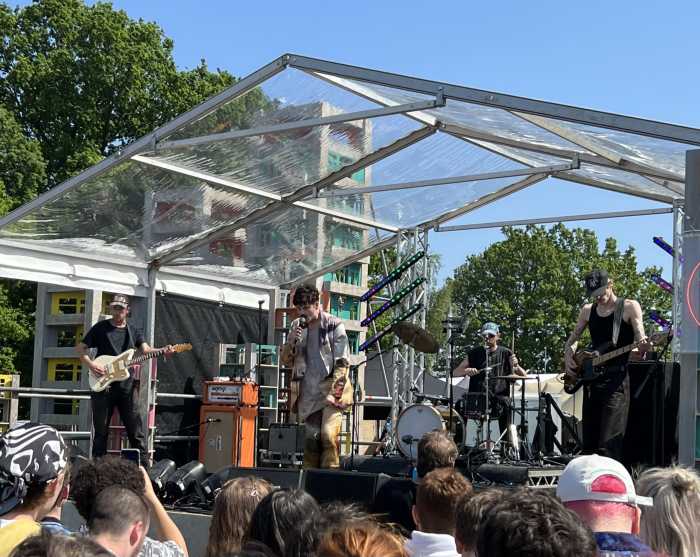This month, Gay City News covers bi singer Brittany Howard and queer, non-binary performance artist Astrit Ismaili’s latest albums.
Brittany Howard | “What Now” | Island | Feb. 9th
Brittany Howard has always kept one eye on the past: classic rock as the singer of Alabama Shakes, R&B as a solo artist. But she’s grown more adventurous on her own. Her two solo albums evoke several periods when Black artists’ creative possibilities opened up: foremost among them, ‘70s funk and ‘90s neo-soul and dance music.
Like some recent R&B artists (Cleo Sol, Victoria Monet), Howard embraces live instrumentation. “What Now” does not sound like a digital audio workstation creation. Its guitar and bass were audibly played in the studio. However, no one would mistake it for a recording of a live band. The space and structure of “What Now” are carefully conceived. Most songs end with a ghostly echo slowly fading away over 20 seconds. On “Red Flags,” most of the music drops out to allow Howard to harmonize with herself against a synthesizer. “Samson” finds her contemplatively singing “ “ over rimshots. The arrangements never get too busy. Rather than maintaining a constant wall of sound, the mix is carefully controlled.
“What Now” brings sounds from the ‘70s together with electronics. The title track begins with a rigid, almost robotic drum loop – it could be a standard preset – but builds guitar and bass in the rhythm’s spaces. On more than one song, the percussion is inspired by drum’n’bass. The trumpet and electric piano of “Samson” call back to French chanson and vintage jazz fusion, while “Every Color Is Blue” delivers a more agitated, even desperate version of the style. Yet even these touches come filtered through an ethos stepped in decades of crate digging and sampling.
Howard places sounds from different genres next to each other. Not a showy guitarist, her playing tries to make its impact with as few notes as possible. She never plays solos. Programmed beats support gospel-inspired vocals and subtly jazzy rhythms. Even in Alabama Shakes, Howard’s voice dominated the band. The lyrics are haunted by Howard’s divorce from her wife, but they see her own flaws clearly. “I’ve never been good at saying what I mean/Every time I try, it comes out incomplete,” she admits on “Red Flags.” She sings even commonplace phrases like “fools rush in” with great passion. “What Now” resonates all the louder because Howard knows how powerful quiet can be.
Astrit Ismaili | “The First Flower” | The Performance Agency | Feb. 23

It’s easy to look at flowers as beautiful objects, disconnected from the fact that they’re living things plucked from the earth and put on sale. With “The First Flower,” Albanian singer and performance artist Astrit Ismaili uses them as a symbol of the objectification of humans. This is a concept album about the experiences of the first flower to blossom on Earth. In an art world context, Ismaili’s work, such as the 3-singer operetta “Miss” can seem arid, straining to move an audience that sits still and applauds anything politely. It sounds far more urgent when turned into pop music. Their YouTube channel documents a decade’s worth of work, with revealing playlists linking to videos of sound effects of breaking glass, dishwashing ASMR, and pop singers both arty and mainstream.
“The First Flower” evolved out of a performance they first gave in 2019. Their flowers are both commodities and beings who grow into full beauty and maturity. The fictional framework allows Ismaili the freedom to write about their themes without being tied to literal experience. “Symbolism” alludes to slavery and the persistence of human trafficking: “they traded us around the world…they will sell me, they will cut me, they will kill me.” “MISS KOSOVO,” which samples a machine gun, presents Ismaili as a beauty contestant who takes to the boardwalk to reminisce about the Republic of Kosovo’s 2008 declaration of independence from Serbia and homophobia as the common factor between all of Albania’s political and religious factions.
The title track contains a full album’s worth of ideas in 12 minutes. Many artists would chop it off into far shorter, individual songs that stick to one genre. But Ismaili blows up electronic dance music and hyperpop to Broadway maximalism. Nothing on “The First Flower” sounds untouched by studio processing. Ismaili’s voice is frequently distorted and pitch-shifted. (On “Bee My Long Distance Friend,” they sound downright robotic.) Even the most obviously synthetic sounds are warped as well. Rather than using chord progressions that resolve, they prefer keeping their songs in suspension, while drums tend to add to a jittery mood. Where most artists would place a chorus, Ismaili turns their vocals into a smeared glitch.
Ismaili has a weakness for phrasing their points as slogans: take “participate, don’t assimilate,” sung during “MISS KOSOVO.” But “The First Flower” reflects on what it means to make queer music beyond an artist’s own identity or lyrics. It gives theater kids a good name.



































